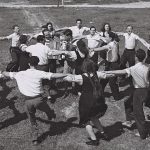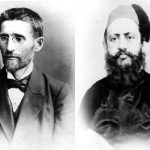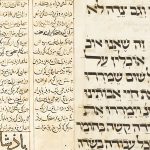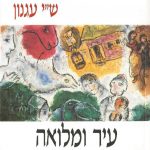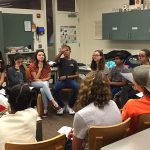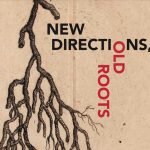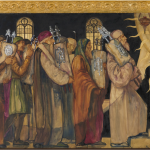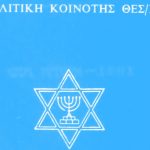Jewish Studies Year in Writing, 2017-18
Miss any of the great writing that appeared on our website in 2017-18? We’ve gathered our top articles written by students, faculty and friends of Jewish Studies — on Sephardic culture, Israel, Hebrew language and literature and more — from the 2017-2018 academic year. Browse by topic:
Arts & Culture / Hebrew Language & Literature / Israel Studies / Sephardic Studies
Arts & Culture
How Gary Shteyngart’s Russian Jewish past informs his literary present
By Denise Grollmus
Ph.D. candidate Denise Grollmus explains how novelist and 2018 Stroum Lecturer Gary Shteyngart’s Soviet-inflected humor is more relevant than ever in Trump’s America.
“An unjustified s(ch)mear campaign”: Narratives of American Jewish food
By Rachel B. Gross
Professor Rachel B. Gross (San Francisco State) tracks popular narratives around the supposed decline of American Jewish cuisine — as well as the recent foodie revival of classic deli food.
What makes music sound Jewish
By Sarah Riskind
Using audio clips from “Hava Nagila” and classic Sephardic ballads as examples, Graduate Fellow Sarah Riskind, a composer, explains what makes Jewish music unique.
Hebrew Language & Literature
The apology is in the mail: Hebrew, bureaucracy and gender
By Nancy E. Berg
Professor Nancy E. Berg (Washington University, St. Louis) noticed that an apology from the Israel Postal Company was much more apologetic in English than it was in Hebrew, leading her to reflect on the differences between the two languages and how they treat gender.
How to revive an ancient language, according to 19th-century Hebrew and Persian revivalists
By Sara Molaie
Graduate Fellow Sara Molaie explains how two language activists approached the unlikely task of bringing ancient Hebrew and pre-Islamic Persian back into use.
Discovering the unexpected connections between Persian and Hebrew
By Sara Molaie
Graduate Fellow Sara Molaie’s work with Hebrew as a comparative religion student revealed surprising connections with her native language, Persian.
Wonder Woman and the superpower of Hebrew
By Naomi B. Sokoloff
Professor Naomi B. Sokoloff explains how the complexities of translating “Wonder Woman” into Hebrew can help us think about the biblical concept of the “woman of valor.”
Learning Hebrew, mother and child
By Hannah Pressman
How does language connect children to their parents? Dr. Hannah Pressman reflects on learning Hebrew as a child and discovering her mother’s ulpan notebook.
Reading Agnon in Indiana
By Adam Rovner
Professor Adam Rovner’s (University of Denver) move from Israel to Indiana deepened his appreciation of Hebrew, thanks to one of Israel’s most classic authors.
Israel Studies
How Israel is redefining foreign aid for the 21st century
By Sam Gordon
Graduate Fellow Sam Gordon argues that Israel’s education-based approach to foreign aid is uniquely well-suited to the demands of the 21st century.
Israel in Asia? Why global trends are pushing Israel to “look east”
By Sam Gordon
Graduate Fellow Sam Gordon explains how, in a shifting world order, Israel both is and isn’t making a strategic “pivot to Asia.”
Using project-based learning to teach the Israeli-Palestinian conflict
By Rob Keener
Graduate Fellow Rob Keener explains that concepts and real-world connections are key in teaching history well.
The challenges and opportunities of peace education in Israel
By Rob Keener
Graduate Fellow Rob Keener explains how projects like Camp Harmony and the Hand in Hand School in Israel demonstrate both the promises and difficulties of teaching for peace.
How Iraqi Jews are reclaiming their cultural legacy in Israel
By Pablo Jairo Tutillo Maldonado
Graduate Fellow Pablo Maldonado explains how, following their forced migration in the 1950s, Israel’s Middle Eastern Jewish community is reconnecting with its heritage through music.
The military in Israeli politics, state & society
By Marwa Maziad
Near and Middle East Studies Ph.D. candidate Marwa Maziad argues that the influence of the Israeli military extends into the nation’s government, economy, and national security apparatus.
Car accidents, kippahs and comradery: What witnessing medical emergencies in Israel taught me
By Tess Seltzer
Student Tess Seltzer reflects on what she learned about resilience after volunteering at a Tel Aviv hospital and with Magen David Adom, the Israeli Red Cross.
Sephardic Studies
Exploring Ladino’s past, present, and future at the ucLADINO Symposium
By Molly FitzMorris
Graduate Fellow Molly FitzMorris reports back on a UCLA conference that explored the Ladino language’s fusion of the old with the new.
What the Jews of the Iberian Peninsula can teach us about political power & minority status
By Vivian Mills
Graduate Fellow Vivian Mills shows how all-too-familiar patterns of discrimination and exclusion affected Sephardic Jews in the Middle Ages.
Shem Tov de Carrión: How a Jewish poet from medieval Spain speaks to us today
By Vivian Mills
Shem Tov de Carrión’s “moral proverbs” about human nature and right rulership are surprisingly relevant today, Graduate Fellow Vivian Mills writes.
The paradox of Hanukkah in Greece—and in Auschwitz
By Devin E. Naar
Professor Devin E. Naar explores Greek-Jewish identity through letters from the Holocaust and prayers from Salonica.
How the Turkish “City of Peace” remembers its Sephardic veterans
By Özgür Özkan
Grad Fellow Özgür Özkan walks through a new exhibit that remembers Çanakkale’s Sephardic veterans—and reaffirms its pluralistic identity.
Want to keep up to date with great articles Stroum Center students and faculty? Subscribe to our quarterly newsletter, or follow us on Facebook, Twitter, or Instagram.
Then you go to the pharmacy with the prescription and order the medicine visit website. There he will bring it in 2 hours, in the presence of prescription drugs are often not available. Two hours later, you will receive an SMS notification that the medication can be picked up.



